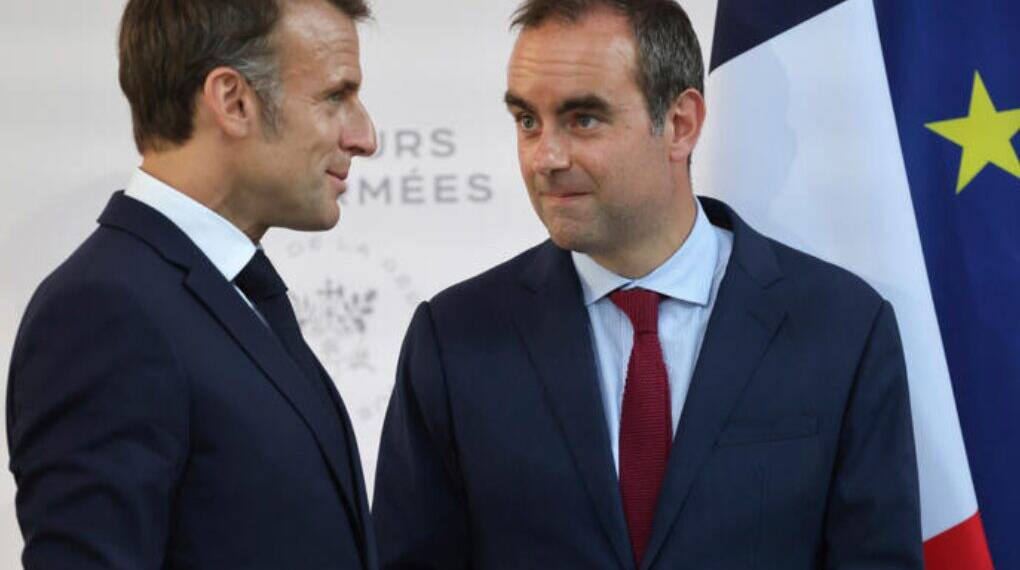In an unprecedented political collapse, France’s new Prime Minister Sébastien Lecornu resigned on Monday—just 27 days after taking office and less than 24 hours after unveiling his cabinet—plunging the nation into one of its deepest constitutional crises in decades.
His resignation, accepted swiftly by President Emmanuel Macron, has not only rattled the French political establishment but also triggered sharp economic tremors across Europe.
Lecornu, who replaced François Bayrou barely a month ago, became France’s fourth prime minister in less than a year—a record that underscores the political instability gripping Macron’s presidency. His resignation speech carried a tone of resignation and regret: “It would take little for it to work—by being more selfless for many, by knowing how to show humility. One must always put one’s country before one’s party.”
A Cabinet That Collapsed Overnight
Lecornu’s downfall came mere hours after unveiling his new cabinet on Sunday night. The team, which he described as a “government of unity,” was instead met with scathing criticism from all sides of the political spectrum. His decision to reappoint controversial figures like former Finance Minister Bruno Le Maire to the defense portfolio drew particular ire, as critics accused Le Maire of presiding over a ballooning public deficit.
France’s debt now stands at €3.346 trillion ($3.9 trillion), or 114% of GDP, with debt servicing alone consuming nearly 7% of state spending. Lecornu’s foremost challenge was to pass a new budget under these constraints—an almost impossible task in a fractured parliament.
By Monday morning, the backlash had grown so severe that Lecornu handed his resignation to Macron before the new ministers could even hold their first meeting. Many of them—some not even formally sworn in—found themselves relegated to caretaker status overnight.
Opposition Seizes the Moment
The resignation provided fresh ammunition for both Macron’s far-right and far-left opponents. Marine Le Pen, leader of the National Rally (RN), called on Macron to “return to the people.”
“This raises a question for the President of the Republic: can he continue to resist the dissolution of the legislature? We have reached the end of the road,” Le Pen said. “The only wise course of action in these circumstances is to return to the polls.”
On the far left, France Unbowed (LFI) echoed those calls with even greater urgency. LFI leader Mathilde Panot declared, “Three prime ministers defeated in less than a year. The countdown has begun. Macron must go.” Jean-Luc Mélenchon went a step further, announcing that over 100 MPs had already tabled a motion to impeach the president.
Economic Shockwaves Hit Paris
The political meltdown sent shockwaves through financial markets. The CAC 40 index plunged nearly 2%, marking its sharpest single-day fall since August. Banking giants BNP Paribas, Société Générale, and Crédit Agricole tumbled between 5.7% and 7.3%, while the euro dropped 0.7%, trading at $1.1665.
Olivier Blanchard, former IMF Chief Economist, criticized the government’s tone-deaf strategy: “Hard to understand what was in Macron and Lecornu’s minds in presenting more or less the same government, with one largely unpopular addition. The discussion is about personalities, not policies.”
Growing Frustration Inside Macron’s Camp
Even members of Macron’s own camp voiced dismay. Outgoing Environment Minister Agnès Pannier-Runacher posted on X (formerly Twitter):
“I despair of this circus where everyone plays their part, but no one takes responsibility. To those who still think we could govern without the Left—I say, you are mistaken.”
Her words captured the exhaustion within Macron’s alliance, as internal fractures between centrists and moderates widen.
A Presidency Under Siege
Macron, who swept to power in 2017 as a centrist reformer breaking France’s traditional party structure, now faces the worst crisis of his presidency. His once-dominant Renaissance party controls barely a third of the National Assembly, while the far-right and far-left combined hold over 320 seats—effectively paralyzing governance.
Lecornu’s resignation marks Macron’s fifth government collapse in just two years, a pace unseen since the turbulent years preceding the Fifth Republic’s creation in 1958. Analysts warn that the institutional balance designed by Charles de Gaulle to ensure presidential stability is now at risk.
What Lies Ahead for France?
Macron faces a grim set of options. He could attempt to appoint another prime minister—though few are likely to accept such a perilous post—or dissolve the National Assembly and call for new elections, as demanded by the opposition. The latter would carry enormous risks, potentially delivering an outright parliamentary majority to the far-right National Rally.
For now, France is once again without a functioning government, with ministers reduced to caretakers and public confidence eroding rapidly. The deepening crisis has left citizens weary and investors nervous, as Macron’s authority wanes and Europe watches anxiously.
As France teeters on the brink of another political reset, one question echoes from Paris to Brussels: Can Emmanuel Macron still govern—or has France entered the twilight of the Fifth Republic?








